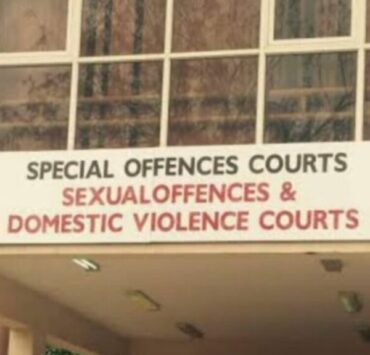Unlawful Termination: Cameroonian Files N350m Suit Against British-American Tobacco

Lawyard is a legal media and services platform that provides…
A Cameroonian procurement expert, Eithel Effiang Mbunkur, has filed a lawsuit against British-American Tobacco Marketing Nigeria Limited at the National Industrial Court Lagos Division for alleged wrongful and unlawful termination of his employment.
Mbunkur, in his statement of fact, accompanied by an affidavit sworn by the claimant and filed before the court by a Lagos lawyer, Oluwole Kehinde, the deponent averred that he is a Procurement expert of 11, Rue de la Mosquée, Cite des Palmiers, Douala, in Cameroon, Central Africa.
He stated that he applied for the British America Tobacco company’s position of Associate Manager for Procurement sometime in November 2018.
Upon successful interview and the defendant’s confirmation on the telephone on or about March 21, 2019, that he would be engaged, he resigned from his former employment.
The claimant stated that he was to resume on April 1, 2019, but the company did not give him an offer letter to that effect. On April 10, 2019, he received the offer of employment by email but was surprised that the role in the offer letter differed from what was advertised and applied for. Accordingly, he sought clarification of this change.
The claimant added that he was told that the reason for the change of role was for the purpose of applying for the STR visa.
He stated that he had a telephone discussion with the company on April 25, 2019, after which he sent the acceptance letter as requested. He stated that the defendant confirmed receipt immediately by email on the same day to process his STR visa.
The claimant further emailed to inquire whether he would pay for the Visa processing, and on April 29, 2019, the defendant emailed to inform him to pay for all expenses related to the STR visa process, as he would be reimbursed once he landed in Nigeria.
The company subsequently requested copies of his educational/professional certificates, which he sent the same day. The defendant received them and supplied him with the documents required for a work permit.
In the STR visa application, the company clearly stated, “We believe Mr. Eithel Mbunkur’s experience and background check qualify him for this appointment.”
Later, he visited the Nigerian Embassy to submit the application and confirmed to the company that he intended to arrive in Nigeria on May 7, 2019. His visa was issued on May 2, 2019.
However, on May 6, 2019, the defendant emailed him that the company had just been contacted by its background check consultants, and the consultant required his previous employer’s address. He immediately provided the address.
The claimant stated that he received his visa on May 7, 2019, and requested that his flight be rescheduled once the ticket had been issued.
However, on May 16, 2019, the company, by way of email and attachment, wrote that the result of his background checks gave sufficient cause for concern and was unsatisfactory. In view of the negative outcome of the background check, the company was unable to proceed with the offer or allow him to assume his job with the company and thereby revoked his offer of employment.
He stated that the disclosure of the alleged negative background checks upon which the defendant based its decision to revoke the offer of employment is fundamental, as he was not given the opportunity to challenge the background checks. The claimant stressed that by relying on a report before its accuracy was verified and validated, the company prejudiced its own decision.
He added that the defendant’s refusal to disclose the content and result of the alleged background check to him is “inimical, unfair, and reprehensible,” and renders the report “invalid and a nullity.”
The claimant stated that, according to the international labour standards established by the International Labour Organisation (ILO), the defendant has a duty to prove the reason given for terminating his appointment.
He stated that he was forced to incur monumental costs and damages as a result of the unwarranted and wrongful termination of his employment.
Consequently, the claimant prayed the court for a declaration that the termination of his employment based on the alleged background check conducted on him by the defendant is wrongful, as the said background check and termination of the claimant’s employment are against best labour and employment traditions, conventions, and best practices.
He urged the court to award N350 million as compensation for the wrongful and unlawful termination of his employment by the company
Lawyard is a legal media and services platform that provides enlightenment and access to legal services to members of the public (individuals and businesses) while also availing lawyers of needed information on new trends and resources in various areas of practice.













